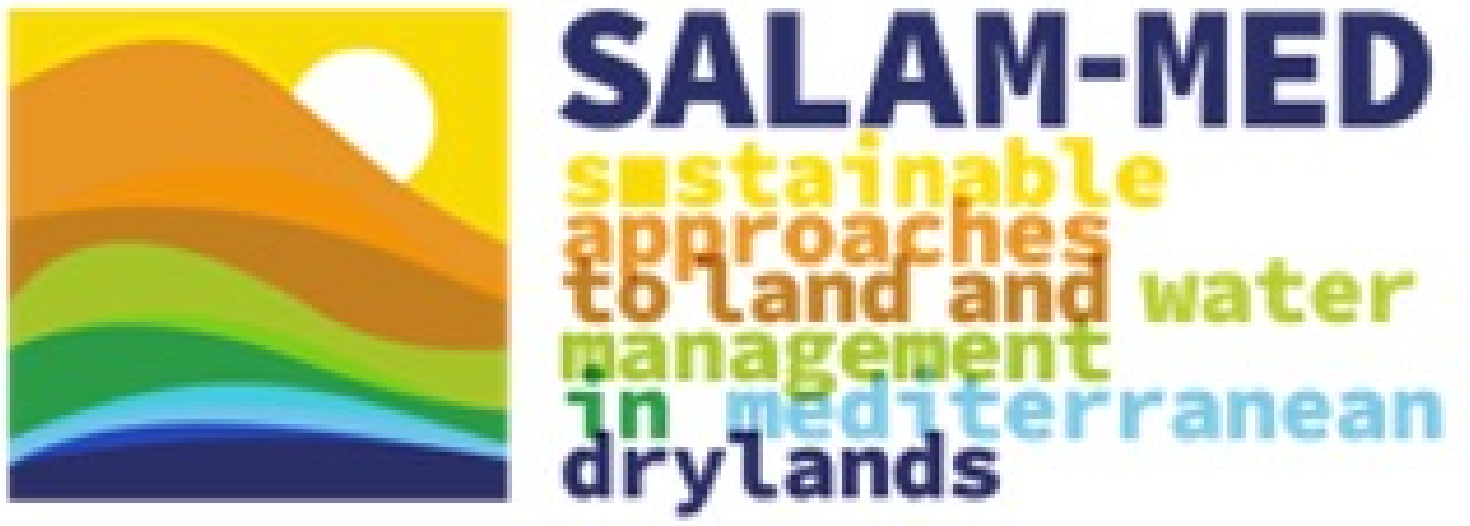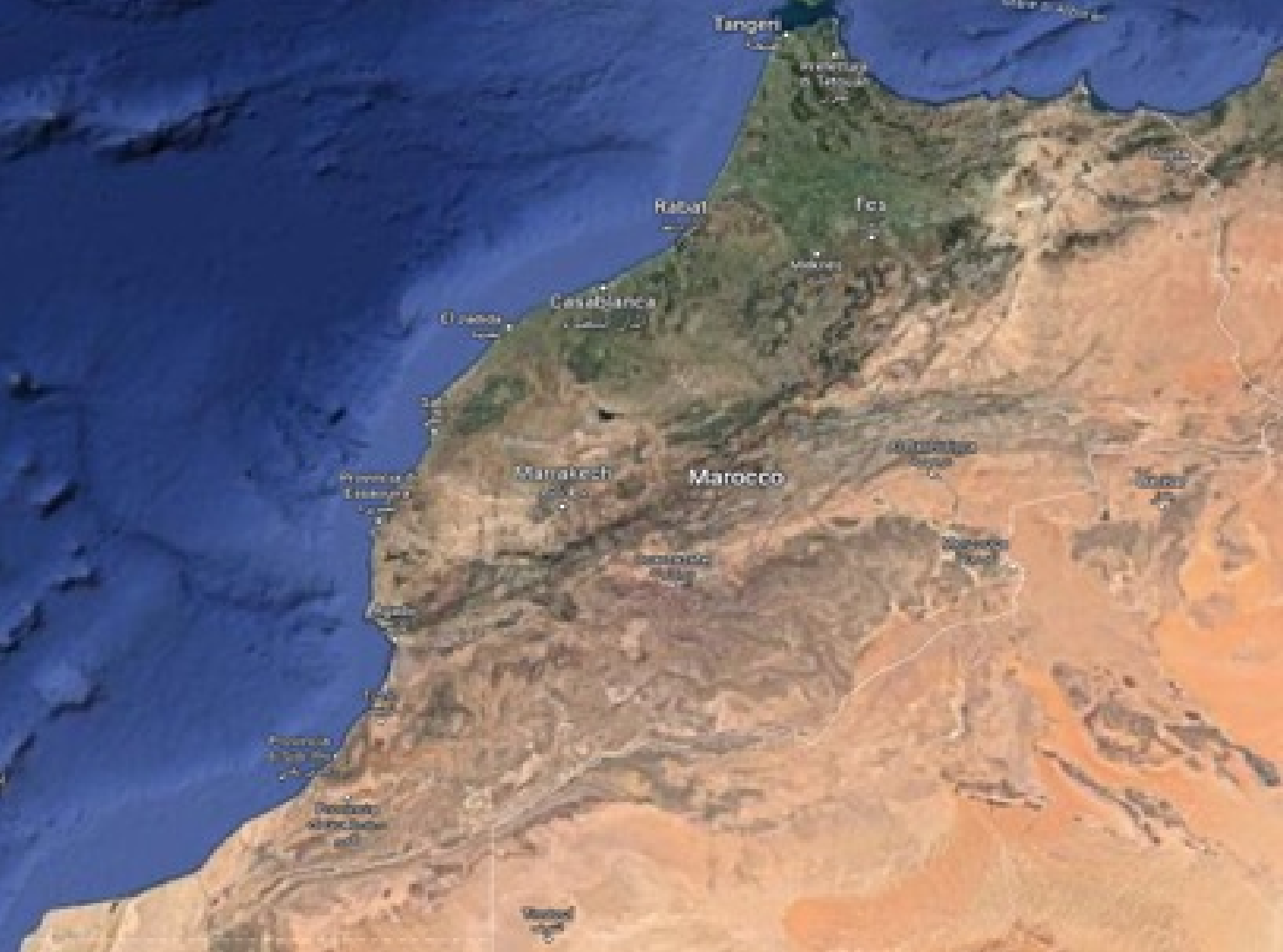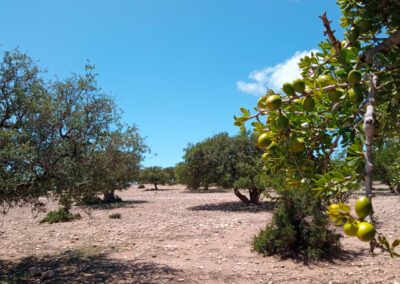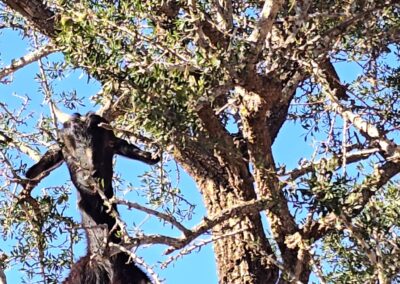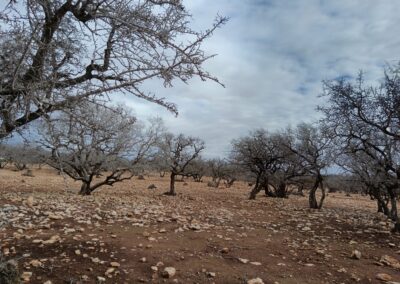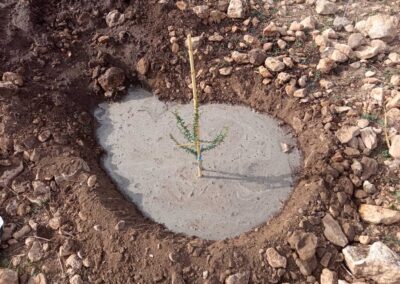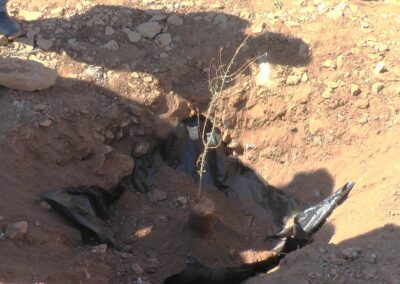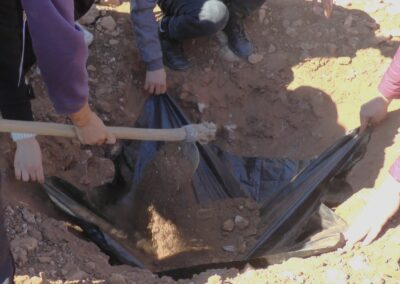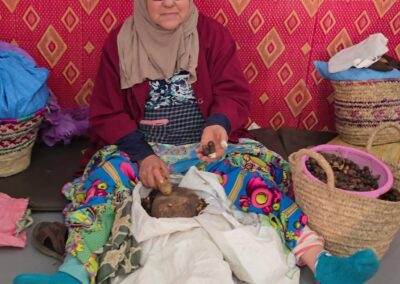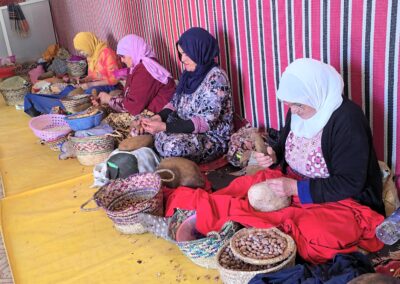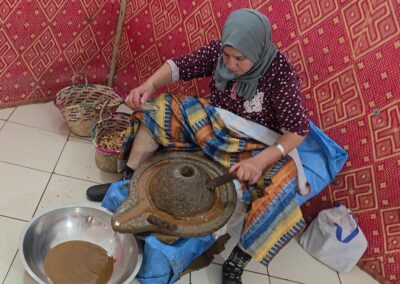Morocco
Almost 90% of the rural economy in the region is dependent on the argan agroforestry system. SALAM-MED will combine smart grazing management, Subsurface Water Retention and Water Harvesting technologies to reverse land degradation in the Argan forests of Essaouira.
Technologies and Practical solutions developed here
Subsurface Water Retention Technology
Leader
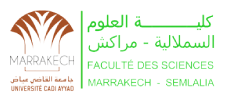
University of Cadi Ayyad
Profile
Altitude: 370 m a.s.l.
Coordinates: 31.101° N; 9.687° W
Size: 3 km² scalable to ≈1364 km²
Mean annual temp: 23 °C
Mean annual prec: 250 mm
Mean annual ETo: 850 mm
Aridity index: 0.30
Local population : 6,500
Main land uses, crops and animals: agro-
silvopastoral, argan, olive, wheat, goat,
sheep, cows
The Living Lab
The Moroccan TAGANT Living Lab aims to restore and strengthen the resilience of the vulnerable Argan forest ecosystem in Essaouira, Morocco, crucial for biodiversity, land protection, and local livelihoods through argan oil production. The region faces significant threats, including deforestation, resource overuse, drought, and intensive grazing, endangering the forest’s sustainability.
read more close
TAGANT LL emphasizes two primary approaches: improved grazing management and innovative reforestation techniques, such as Subsurface Water Retention Technology (SWRT) and biostimulants. Collaborative workshops have been key to validating these approaches with local stakeholders, promoting active participation, and increasing acceptance of new technologies. The lab has shown promising results, notably improved soil moisture and enhanced Argan tree growth due to these advanced reforestation technologies. Monitoring and evaluation incorporate frequent data collection, stakeholder feedback, and active involvement of women, doubling their engagement levels. Efficiency is maintained through synergy with ongoing initiatives, timely resource use, and stakeholder enthusiasm. However, challenges persist, particularly communication difficulties due to local illiteracy and initial stakeholder resistance to change. The LL team is addressing these through consistent stakeholder interaction, educational efforts, and flexible workshop planning. Overall, the TAGANT LL demonstrates the value of participatory approaches and innovative technologies in ecological restoration, providing practical solutions to land degradation, fostering local economic opportunities, and significantly enhancing socio-ecological resilience. Future steps involve deeper stakeholder involvement and further refinement of strategies to support sustainable Argan forest management.
Last News from the Living Lab
This section aims to foster dialogue and exchange of information among key Living Lab stakeholders, continuously updating all participants on progress and news about activities carried out.
Visites des équipes partenaires du projet Salam Med
Dans le cadre du projet Salam Med, des visites ont été organisées au Maroc pour accueillir des équipes de partenaires internationaux. L'objectif principal de ces missions était...
General Assembly Meeting of the Salam Med Project – February 2025
The General Assembly meeting of the Salam Med project was held from February 12 to 14, 2025 at the Faculty of Sciences Semlalia, University Cadi Ayyad, in Marrakech (Morocco)....
ورشة العمل الثالثة للمختبر الحي – المغرب
نحو مناظر طبيعية مستدامة لشجر الأركان: تصميم مشترك لحلول طبيعية في منطقة الصويرة في السادس من يونيو المنصرم، نظّم المختبر الحي المغربي التابع لمشروع ورشته الثالثة في سيدي كاوكي،...
Stakeholders
The Living Lab is based on the collaboration of different stakeholders, each of whom brings useful skills and resources to address the area’s challenges in an integrated way. Their active participation enables the development of effective and shared solutions. This section presents the main stakeholders and their contributions to the project.
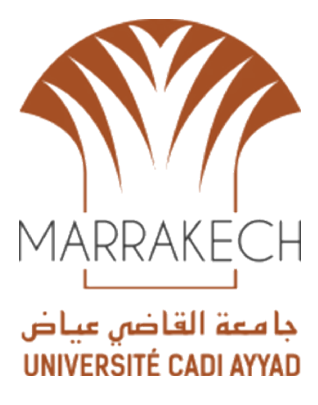
Université Cadi Ayyad – Marrakech
Based in Marrakech, Université Cadi Ayyad (UCA) is one of Morocco’s leading public universities, known for its commitment to academic excellence, research innovation, and community engagement. Founded in 1978, UCA serves a wide network of institutions across southern Morocco…
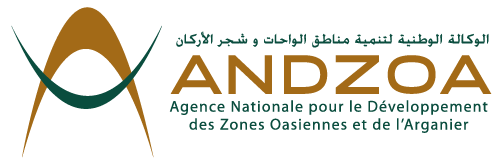
ANDZOA - Agence Nationale pour le Développement des Zones Oasiennes et de l’Arganier
The National Agency for the Development of Oasis Zones and the Argan Tree (ANDZOA) is a public institution dedicated to the sustainable development of Morocco’s oasis regions and the argan tree biosphere. It works to preserve natural resources, strengthen local…
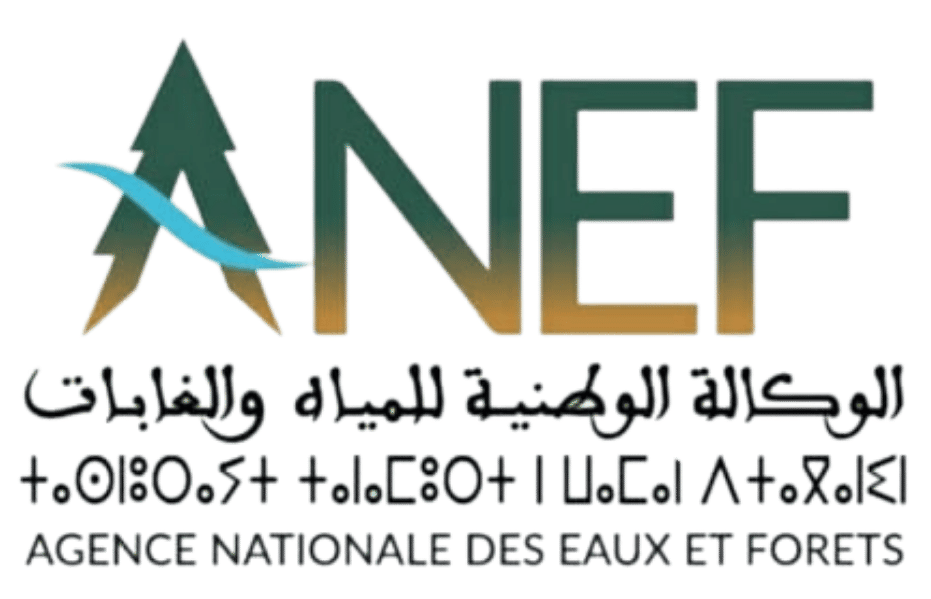
ANEF – Agence Nationale des Eaux et Forêts
The National Agency for Water and Forests (ANEF) is the national authority responsible for the sustainable management, protection, and development of Morocco’s forest and water ecosystems. ANEF plays a pivotal role in preserving biodiversity, restoring degraded landscapes, and promoting…
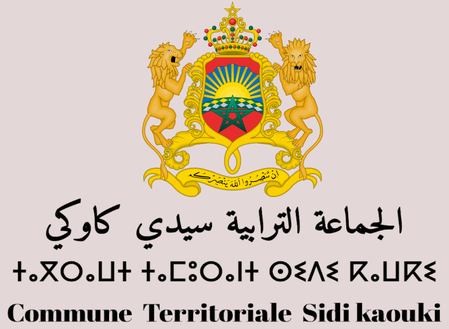
Commune Territoriale de Sidi Kaouki
The Sidi Kaouki Territorial Commune, located along Morocco’s Atlantic coast in the Essaouira Province, is an important local governance body supporting sustainable rural development and natural resource management. As a key institutional partner in the Living Lab, the commune provided a welcoming space for participatory …

Marjana Cooperative
Located near Essaouira, the Marjana Cooperative is a women-led initiative dedicated to the sustainable production of high-quality argan oil. Founded to empower rural women and preserve traditional practices, the cooperative combines ancestral know-how with modern standards of quality, safety, and traceability….
Would you like to be added among the stakeholders?
Sign up and we will add you.
Technologies and Practical solutions developed in this Living Lab
The Arganeraie is a part of UNESCO’s World Network of Biosphere Reserves, and have peculiar eco-geographic and socio-economic dimensions (Faouzi, 2017). Almost 90% of the rural economy in the region is dependent on the argan agroforestry system. Overgrazing, climate change and demographic dynamics are generating land degradation that could be reversed combining smart grazing management, SWRT and simple WH technologies.
Click on the cards below to learn more about the individual technologies tested in the living lab.
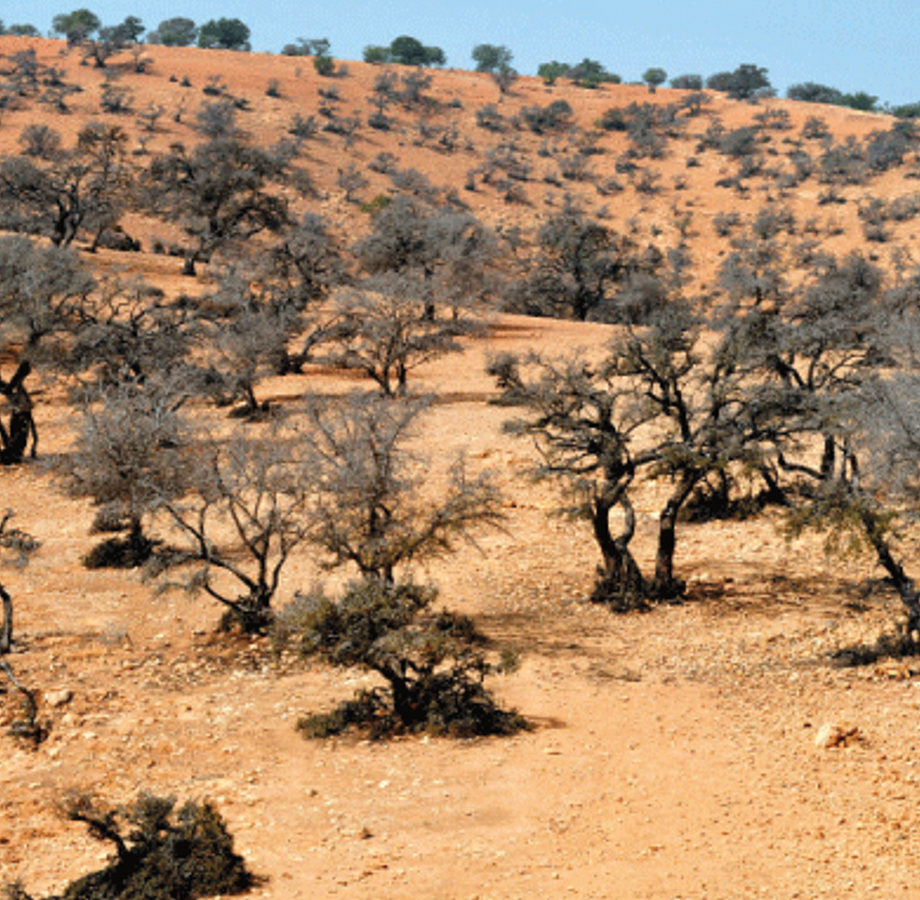
Subsurface Water Retention Technology
Zenodo References
Stakeholders Signup

Université Cadi Ayyad – Marrakech
Based in Marrakech, Université Cadi Ayyad (UCA) is one of Morocco’s leading public universities, known for its commitment to academic excellence, research innovation, and community engagement. Founded in 1978, UCA serves a wide network of institutions across southern Morocco, with faculties and schools in Marrakech, Safi, Essaouira, and Kalaa of Sraghna.
UCA plays an active role in international cooperation, fostering academic mobility and collaborative research projects with institutions across Africa, Europe, and beyond. Through its strong regional presence and global vision, Cadi Ayyad University contributes to shaping a knowledge-based, inclusive future for Morocco and the wider region.

ANDZOA - Agence Nationale pour le Développement des Zones Oasiennes et de l’Arganier
Within the framework of the SALAM-MED, ANDZOA contributed to the establishment of reforestation activities by providing argan tree seedlings and supporting the setup of a pilot site. Their expertise in local agroforestry systems and institutional support were essential to launching restoration efforts on the ground.

ANEF – Agence Nationale des Eaux et Forêts
In the context of SALAM-MED, ANEF provided access to key field sites for rangeland and grazing studies and played a facilitative role in securing the necessary authorizations. The agency’s guidance and logistical support ensured smooth coordination with local forest administrations and alignment with national environmental strategies.

Commune Territoriale de Sidi Kaouki
Its involvement was instrumental in ensuring community participation and local ownership of restoration and research initiatives related to argan landscapes and rangeland dynamics.

Marjana Cooperative
As a local partner in the Living Lab, the cooperative provided essential insights into the argan oil value chain, including production methods, yields, and market trends. Their contribution enriched the project’s understanding of community-based livelihoods and the socio-economic dimensions of argan forest conservation.
